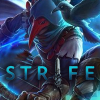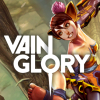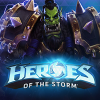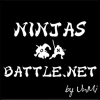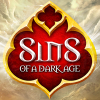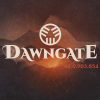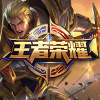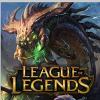Aims to reduce toxicity through a friendly aesthetic, an interdependent laning economy (players benefit from their allies' success), and hiding information about other players' build choices to avoid potential controversy.
Originally a 3v3 game designed for tablet with a single lane and hotly contested jungle. Now also available in 5v5, and on PC and mac with cross-platform compatibility.
Simplifies many traditional lane-pushing game mechanics to focus on being a structured team-brawling game. It has a huge range of maps to play on with varying objectives, and relies entirely on hero-specific talent trees to provide customisation options during each match.
Experimented with use of the z-axis, as well as new harvester objectives and an "affinity card" system.
After two years, its developer Epic Games closed the servers, with the generally accepted reason being to focus on the runaway success of Fortnite. The art assets for Paragon have been made free to use with Epic's Unreal Engine, making room for a range of potential successors to emerge from the community.
Community project intended as a spiritual successor to Dawngate. It has since been discontinued. The work to-date was proposed to be made open-source as a Unity3D project, though so far this hasn't taken place.
Lighthearted game focused on zany hero combat, with surprisingly solid underlying mechanics that challenge genre norms.
A dark-fantasy themed game inspired primarily by League of Legends. It periodically offers team quests which act as mapwide objectives.
Prioritised having a flexible meta and streamlined a number of game systems to make the genre more accessible. The game allowed its community to steer the direction of the story through an accompanying webcomic, and was considered very successful at engaging its players in world-building and lore.
Mobile game resembling League of Legends, with slightly simpler heroes and action controls. It's enormously popular in China, thanks to WeChat and QQ social integration making it easy to bring friends, and building its lore and narrative around Chinese history and mythology.
Outside China, a different version of the game is distributed with the name 'Arena of Valor'. It uses a separate cast of characters, including licensed IP like 'Wonder Woman'. Gameplay on the Nintendo Switch is different to mobile, and as a result it is not cross-platform compatible.
Third-party research agency Jiguang published a report in 2017 declaring that the game's audience was 54% female and 52% under age 24. This has been backed up in 2020 by a report from the Shanghai Online Games Association. A report in 2019 from Newzoo suggests 46% of the Honor of Kings esports audience is female. This is comfortably the most inclusive lane-pushing game on the market, though its success appears constrained to the Chinese market.
